The Ontario Health Study Newsletter, July 2025
Jul 21, 2025 // OHS Newsletter
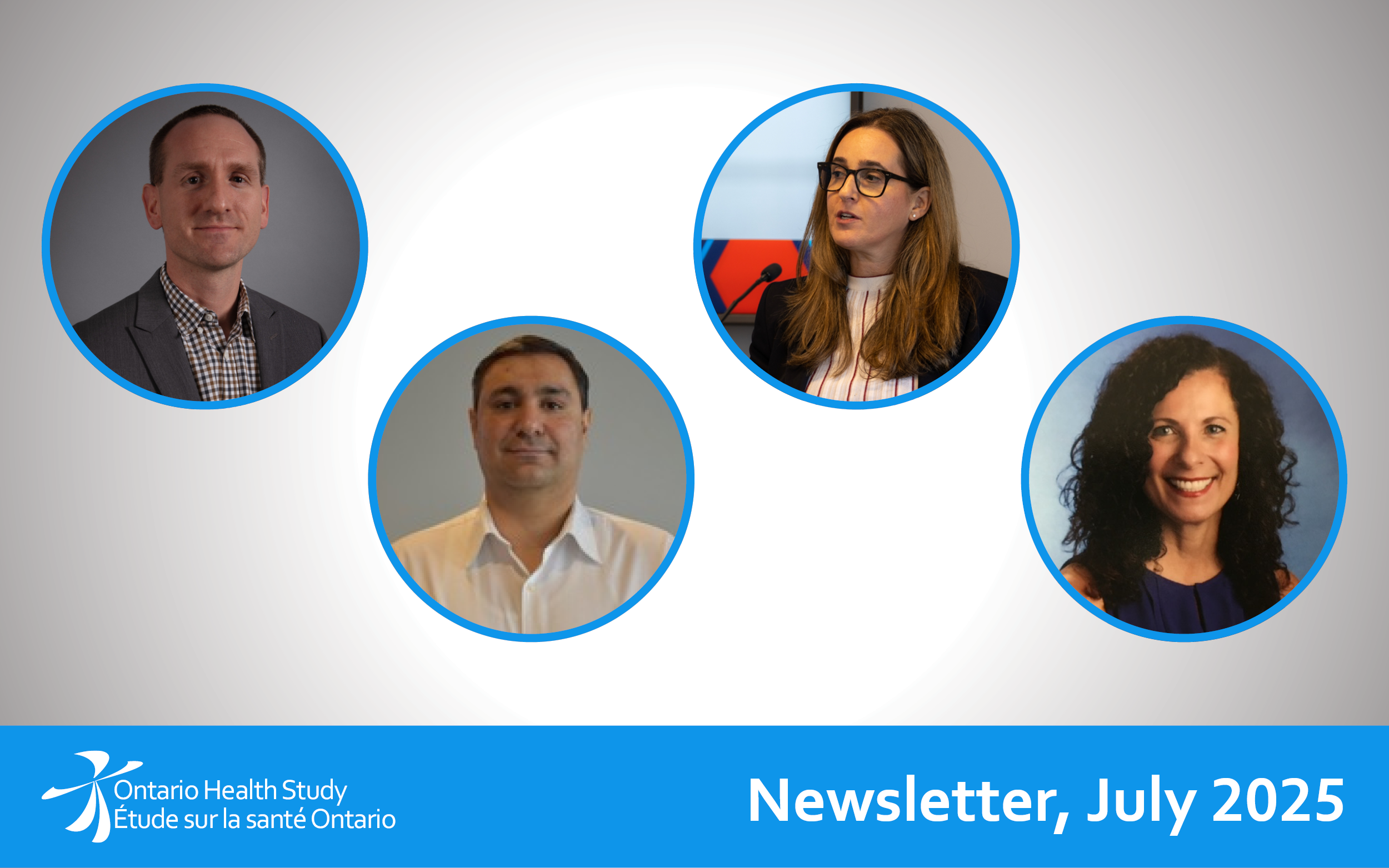
In this issue:
• Ushering in a new era of data-driven health research
• How have you been lately?
• Update on additional blood collection
• National study of heart and brain health includes OHS participants
• Keeping your contact information up to date
• Your data at work
• They asked a cancer researcher
• Why do you remain a member of the Ontario Health Study?
Ushering in a new era of data-driven health research
Diet and physical activity questionnaire coming soon
Dr. Victoria Kirsh, an epidemiologist with more than two decades of research experience, is the new Principal Investigator and Interim Director of the Ontario Health Study.
She knows the Study inside and out, having been involved at its inception and again later in her career.
“In those early days, I was involved in drafting the scientific protocol that laid the groundwork for why this cohort was needed. Establishing the foundation for such an ambitious and vital research initiative was a truly collaborative effort.”
Dr. Kirsh takes over from Dr. Philip Awadalla, who led the OHS for 10 years before taking on new roles at the University of Oxford in England. He remains an advisor to the OHS and stays on as the National Scientific Director for CanPath.
Dr. Kirsh believes this is an exciting time for the Ontario Health Study.
“We're seeing a significant increase in the depth and breadth of data collection from our participants. With four major study activities planned for participants in 2025-2026, including Follow-Up Questionnaire 2, we're poised to gather a truly comprehensive picture of health determinants. This rich data will be invaluable for researchers.”
One of those initiatives is a diet and physical activity questionnaire. The HEALthy Eating and Supportive Environments (HEAL) Study promises to be one of the biggest diet and physical activity data collection efforts in Canada. HEAL will examine how aspects of where you live, such as the types of food outlets close to you and how walkable your neighbourhood is, can affect food choices and your physical activities.
“What people eat, what their daily dietary patterns are, become fundamental drivers of health and disease, influencing chronic disease risk,” she notes.
“Having this data available to researchers will help us explore the long-term impact of dietary intake on health outcomes across diverse populations, opening up new avenues for prevention and treatment strategies to keep people healthier.”
Check our Study Updates page for upcoming questionnaires.
How have you been lately?
A second Follow-Up Questionnaire will update us on your current health, and fill in some important gaps

We’ve heard from many participants in the past few years asking when and how they can give us an update on their health. We’re happy to announce that you now have the chance to let us know, as all participants are invited to take part in the Follow-Up Questionnaire 2!
You may soon receive an email invitation to take part, but you don’t need to wait to begin. To get started, just log into your OHS account, then click the red banner!
This builds on the data collected in the first Follow-Up Questionnaire, which closed in 2018. All OHS participants are eligible to complete this questionnaire, even if you did not complete the previous questionnaire.
What does the questionnaire ask?
While there are some repeated questions to update your personal and family medical histories, the questionnaire also captures more detail about your access to healthcare and screening programs.
As well, there are new, in-depth questions about your mental health, with questions covering your emotional health, social support, resilience, loneliness, and overall well-being.
What have we learned so far?
Over 20,000 OHS participants have already completed their questionnaire since it launched in January. Here are some of the early findings from the questionnaire:
67.7% of participants agree or strongly agree with this phrase.
3.5% of OHS participants do not have a family physician or primary care provider.
75% of participants are currently taking at least one prescribed medication.
91.2% of participants have been to a dental appointment in the past year.
Why is it important to complete multiple questionnaires like these?
Having multiple timepoints to refer to allows researchers to track changes in exposures, behaviours, and other risk factors that affect the development of diseases and other health outcomes.
These additional timepoints also allow researchers to improve predictive models and evaluate the effectiveness of various treatments and health interventions.
Simply put, with more and deeper data about the same group of people, the OHS research platform gets stronger over time.
Between questionnaires, important data are still passively collected. Participants who consented to data linkage or provided a Health Card number allow approved researchers to access de-identified data sources held by other organizations, for example OHIP claims databases or the Ontario Cancer Registry. Read more about data linkage.
Update on additional blood collection
This fall the Study will invite roughly 3,000 participants to provide a second blood sample
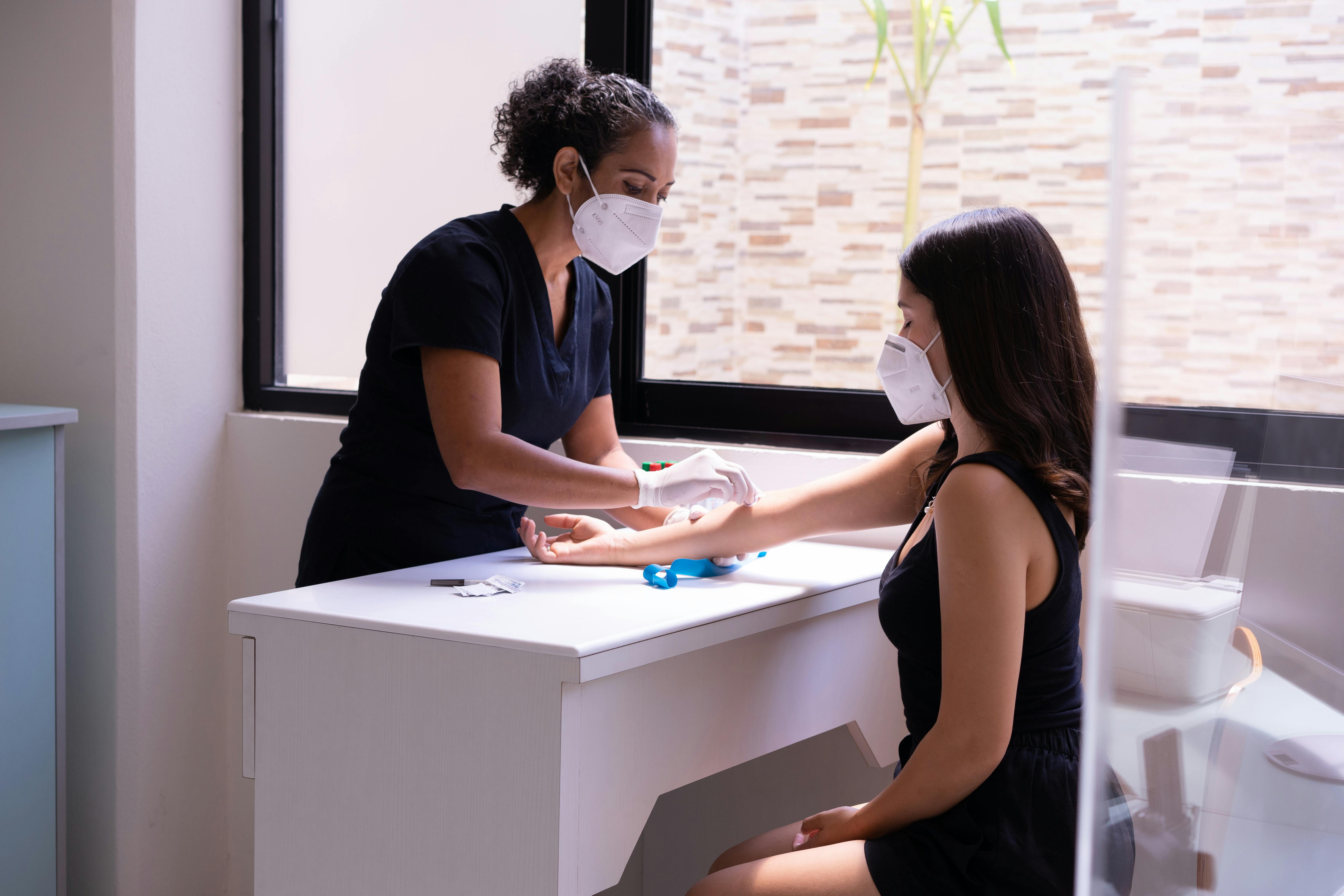
In the previous edition of our newsletter, we announced plans to collect a second blood sample from a subset of participants and discussed the research value of collecting samples at more than one point in time. We are happy to announce that the OHS will begin inviting participants to take part this fall!
🩸 Read more in our November 2023 issue: New blood samples will expand research potential
The OHS team has been hard at work organizing the program and working out the many logistical challenges posed by collecting research samples from thousands of participants located throughout Ontario, efficiently transporting the samples to a lab for processing, and safely preserving them for future research.
We would like to specifically thank the group of 30 participant advisors who were consulted early in the process to provide their input, which has helped shape the program and guided the Study team in their decision-making process. We greatly appreciate your dedication!
Stay tuned for more information about the program. We are also active on Facebook and LinkedIn – follow us there for more frequent updates.
National study of heart and brain health includes OHS participants
Alliance study to re-contact original contributors to explore factors for cognitive dysfunction
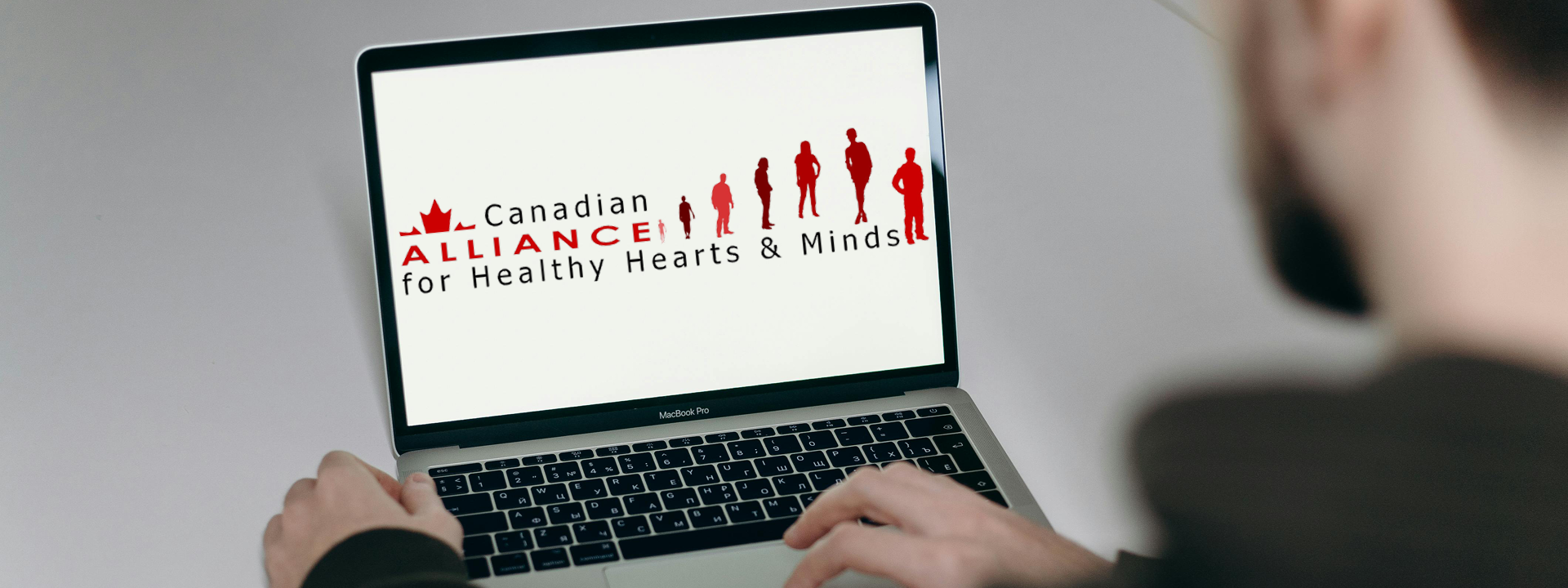
Carrying fat in organs and tissues that don’t normally take on fat – does that make people more prone to cognitive decline?
That’s what researchers from the Canadian Alliance for Healthy Hearts and Minds study (CAHHM) hope to learn later this year when they ask a small group of OHS participants to fill out online questionnaires to assess their physical and cognitive health.
Between 2014 and 2017, more than 3,800 OHS participants agreed to also participate in the CAHHM study. At that time, they completed a baseline questionnaire about their heart health, and over 3,000 OHS participants underwent detailed testing of their heart, the structure of their brain, and cognitive function.
CAHHM researchers now want to re-contact a subset of those original OHS participants with the goal of exploring any connections between ‘ectopic adipose tissue,’ or fatty deposits found in the abdomen, and cognitive decline.
Participation is voluntary and would involve completing an online health and lifestyle questionnaire and an online cognitive assessment. Some of those invited may be asked to take an additional questionnaire, and attend an in-person clinic visit for physical measurements, blood and urine samples, and an MRI (magnetic resonance imaging) scan of the brain, heart and abdomen. Investigators would then compare the new measurements and MRI images with those originally taken between 2014 and 2017, to better understand the early signs of heart disease, stroke and related brain disorders, and any decline of memory and brain function.
What’s next: if you are eligible to be recontacted by the Canadian Alliance for Healthy Hearts and Minds, invitations are expected to start rolling out over the coming months. The CAHHM is not accepting new participants.
The Alliance study is described as a national ‘cohort of cohorts’ because it recruited participants who were already enrolled in existing Canadian health research studies. This included the Canadian Partnership for Tomorrow’s Health (of which the OHS is the biggest contributor), the Prospective Urban Rural Evaluation (PURE), the Montreal Heart Institute BioBank, and a Chinese Canadian cohort from Toronto. Learn more about the Alliance study.
Make sure we can email you about this or other upcoming Study activities: update the contact information on your OHS account.
Keeping your contact information up to date
Simple ways to ensure continued communication over time

 |
| Ayush Lall, Senior Manager, OHS Informatics |
Have you moved recently or changed your main email address? Please make sure to update the contact information on your OHS account so you don’t miss out on the Follow-Up Questionnaire 2, and other future research opportunities.
Not able to log in? Please give us a call or email us to let us know.
On a related note, this OHS Newsletter is out later than usual as we needed to do some email address cleaning! We realized too many of the messages we sent were “bouncing back,” where the recipient’s email addresses were flagged as undeliverable or invalid, and certain email providers were incorrectly labeling us as spam. This made it difficult to reach even those with valid email addresses.
Here are 4 things that Ayush Lall, our Senior Manager of Informatics, says you can do to help the Study stay in contact with you:
|
|
|
|
|
|
|
|
|
 |
|
The OHS has also made some upgrades on our end to ensure we are following best practices and working to confirm that we are only sending emails to valid addresses.
We now send you an email confirmation immediately after you update your email address on your OHS account. Please use the verification link asking you to confirm it was you who made the change. This helps to keep your account secure, and lets us know we have the right contact info for you.
Your data at work
Frailty index a good indicator for predicting health outcomes - Study
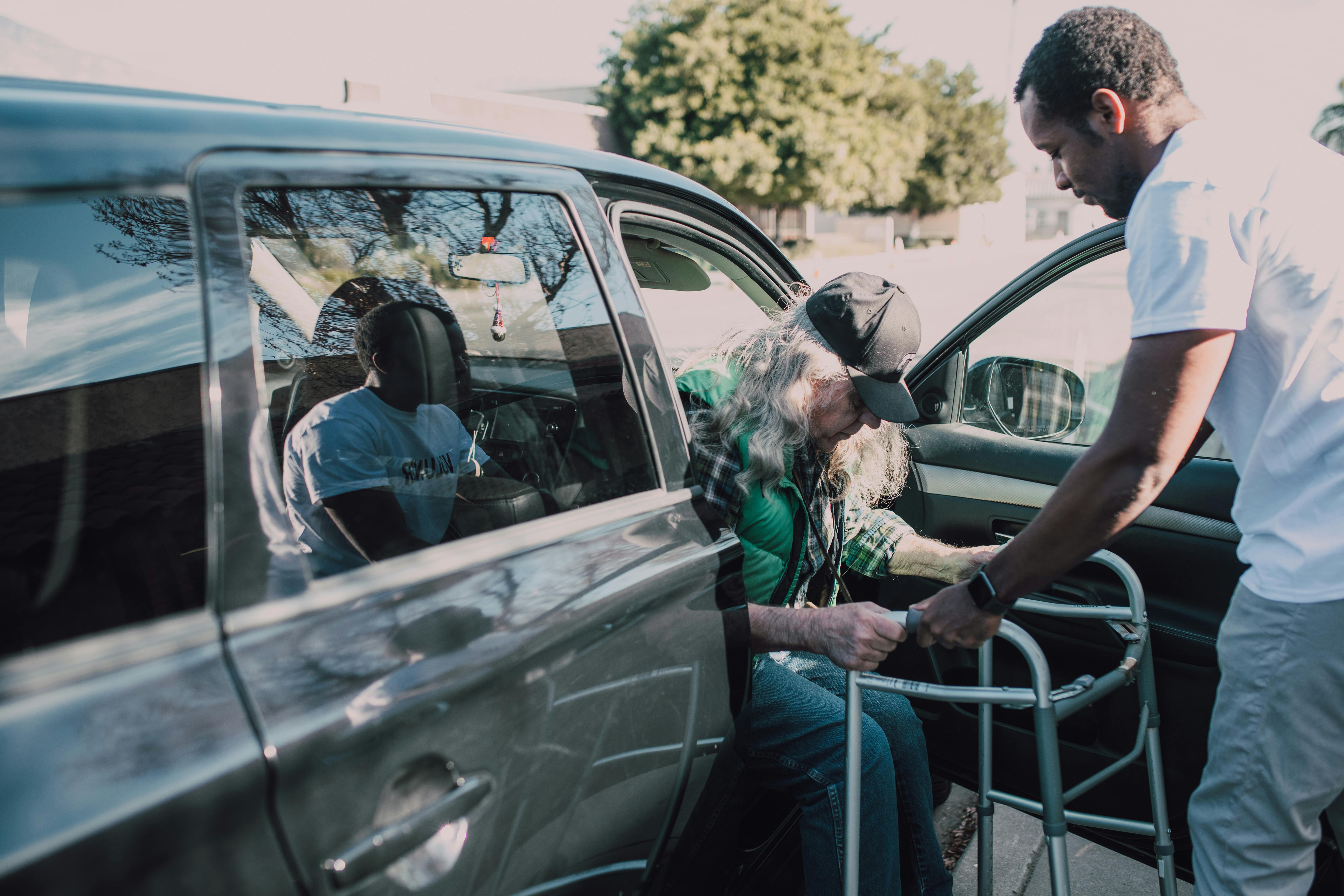
If you’re an older adult, you may have heard of a ‘frailty index’. It usually refers to a tool to assess the health status of older individuals, based on the number of health ‘deficits’ they experience, such as chronic conditions, disabilities, or other vulnerabilities.
An Ontario researcher looked at data from more than 160,000 OHS participants over a seven-year period, both from the questionnaires they answered and from hospital visit records they consented to have accessed.
His findings suggest that, given the burdens facing our health care system, a frailty index could be put to much broader use, and deployed as a health metric for adults of any age, not just seniors, who might benefit from focused social and health interventions.
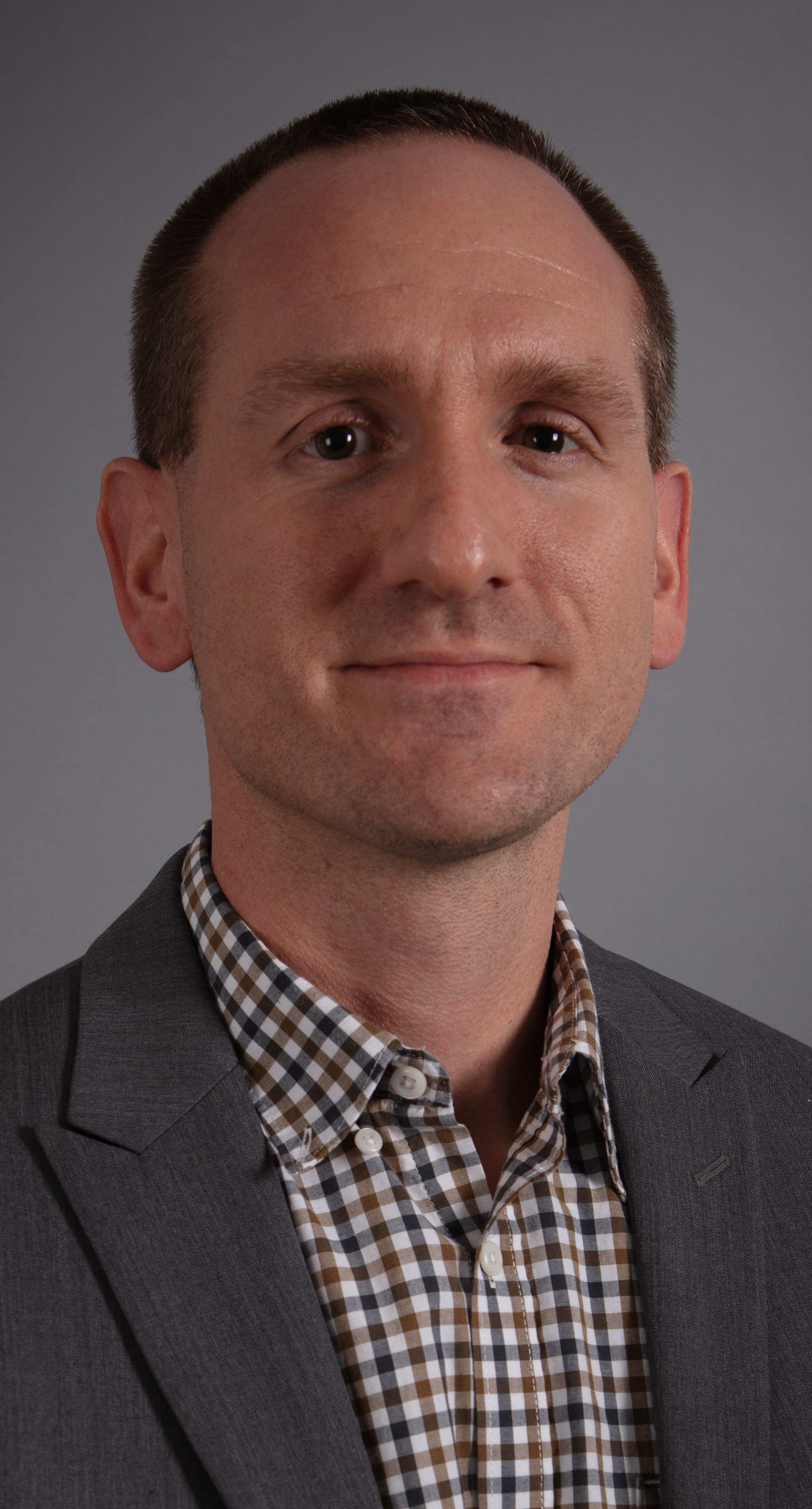 |
| Dr. Chris Verschoor |
“I was expecting that the frailty index would be associated with health outcomes in adults younger than 60 years old, but not necessarily in the youngest age category, ages 18 to 30,” said Dr. Chris Verschoor, lead author of the study and the HSN Foundation Research Chair in Healthy Aging at the Health Sciences North Research Institute in Sudbury.
His paper about the study stated that interventions aimed at reducing frailty before age 60 could have significant economic and social benefits.
The paper’s authors noted “…monitoring health deficit accumulation by family health teams for patients even in their 20 or 30s would aid in the efficient delivery of preventative health interventions such as mental health screening, smoking cessation and vaccination.”
They found that, as expected, frailty increased with age, and was significantly greater in women, regardless of age. Frailty was significantly lower in men, people who reported having been married, those with higher education and income, rural dwellers, non-smokers and people who do not drink alcohol.
Frailty was significantly higher in older adults, those who lived in Northern Ontario and those self-identified as white.
Dr. Verschoor’s team used a frailty index composed of 30 indicators, including self-rated general health and vision, body-mass index, average sleep time, living alone, physical activity, the inability to work due to illness, experiencing radiotherapy or chemotherapy, and a family history of dementia. The index also included conditions such as arthritis, asthma, cancer, heart disease, Crohn’s disease, depression, diabetes, high blood pressure, irritable bowel syndrome, multiple sclerosis, osteoporosis, and Parkinson’s disease. The index was used to categorize participants into low, mild, moderate, and high frailty levels.
What should OHS participants take from the study?
“That making positive lifestyle choices, whether that be regular exercise for your mind and body or spending time with people that make you happy, is important regardless of whether you are chronologically younger or older,” said Verschoor. “There are many ways to combat the effects of frailty and reduce your risk of poor health outcomes later in life.”
Read the full study published in BMC Geriatrics or read this 1,000 word summary of the publication.
They asked a cancer researcher
OHS Participants get answers to their cancer questions from Ontario experts
Did you know that five OHS participants were featured in a video series, posing questions about cancer to research experts from the Ontario Institute for Cancer Research?
In the most recent video, OHS participant Linda asked “What are biomarkers and how do researchers find new biomarkers?”.
|
|
|
|
The “Ask a Cancer Researcher” video series was produced by the Ontario Institute for Cancer Research (OICR), which houses the OHS in Toronto. The videos feature experts in biology, oncology, immunology, and other leading scientists answering questions about cancer, submitted by folks from across Ontario.
Why do you remain a member of the Ontario Health Study?
Here’s what Ivana from Newmarket had to say:
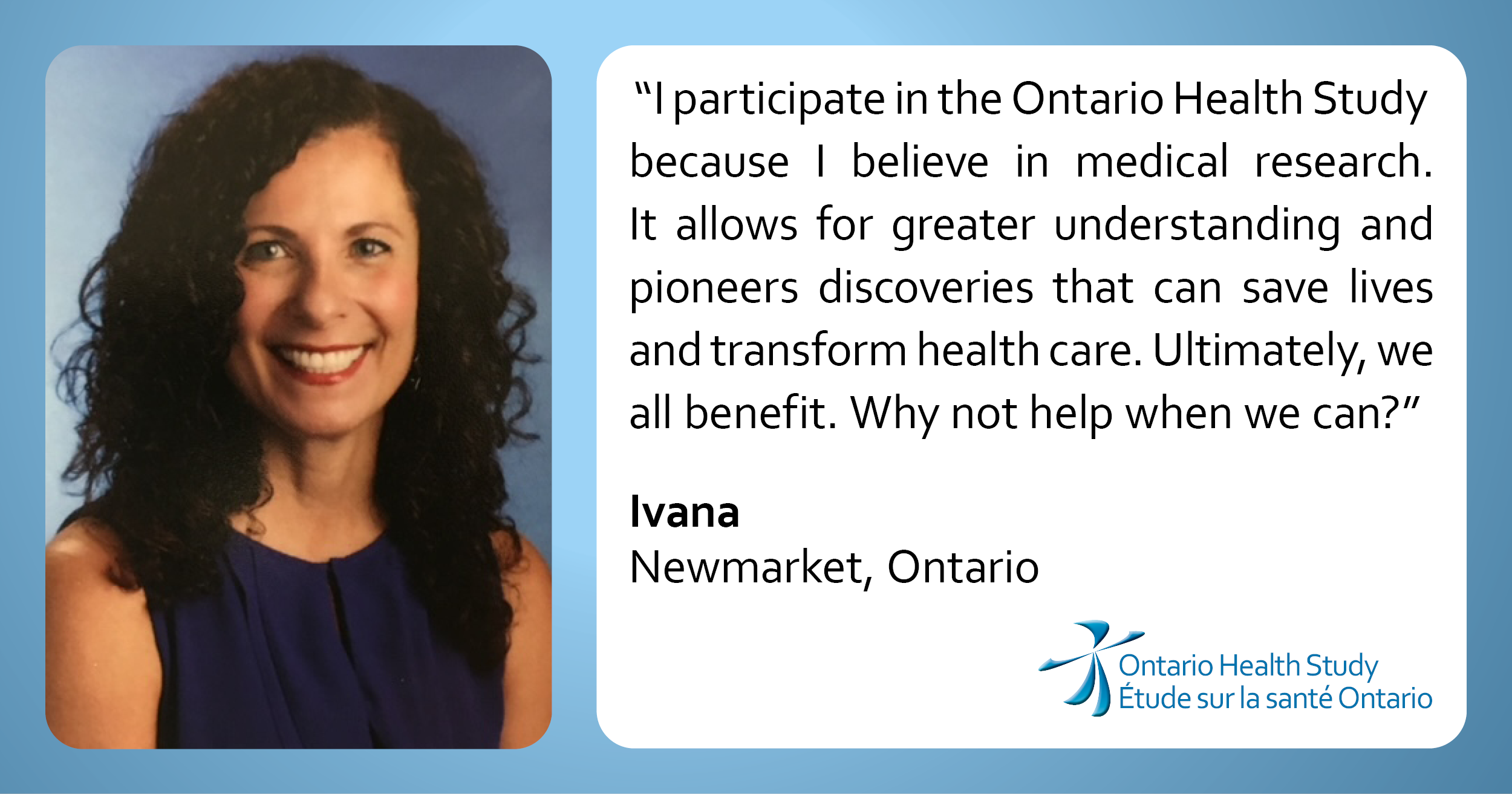
We love hearing from you. Why do you remain a member of the Ontario Health Study? Email us at info@ontariohealthstudy.ca



